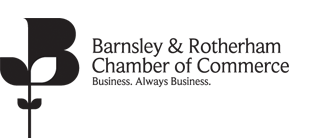
BCC Quarterly Economic Survey: UK economic growth softened further in Q1 2016
The British Chambers of Commerce (BCC) Quarterly Economic Survey – Britain’s largest and most authoritative private sector business survey, based on over 8,500 responses from firms in Q1 2016 – suggests that growth in the UK economy continued to soften in the first quarter, with most key survey indicators either static or decreasing.
Several key indicators for the services sector – the UK’s main driver of economic growth – fell slightly this quarter, with domestic sales and orders reaching their lowest level for over three years. For manufacturing, domestic sales fell again, and remain low in historical terms.
While some manufacturing sector indicators have shown slight improvements, these increases are from a very low base. Combined with the slight weakening in some areas of the dominant services sector, the Q1 figures suggest a static picture — with potential downside risks for UK economic growth ahead.
Key findings in the Q1 2016 survey:
- Overall, the figures for both the services and manufacturing sectors indicate continued growth. However, this has remained static across many indicators, and slackened in others.
- In the manufacturing sector, there has been a slight increase in the number of firms reporting improved export sales and orders – both indicators rising to a percentage balance of +8 from the near-stagnation of +1 seen in Q4 2015
- However, fewer manufacturing firms have grown their workforce in the last three months (+13), or are looking to do so in the next three months (+13), down from a percentage balance of +20 and +17 respectively
- In the services sector, the percentage of companies who are struggling to recruit has risen to 68, the highest level for 18 years – however, more firms expect to increase their workforce in the next three months (+27, up from +21)
- Confidence in turnover and profitability for both services and manufacturing remains low by historical standards
- Domestic indicators largely fell, although they remain stronger than export indicators. The balance of manufacturers reporting improved domestic sales fell two points to +11, although the balance of firms reporting improved orders was up slightly to +13 (from +10). In services, the balance of firms reporting improved domestic sales fell a further six points to +26, while orders fell two points to +21. For both sectors, these are the lowest levels in nearly three years.
- The balance of manufacturers intending to increase prices fell sharply, from +19 to +8 (reversing the rise of the previous quarter), but rose in services, from +21 to +27
- The balance of firms intending to invest in plant and machinery and training fell in the services sector
- Fewer companies reported increased pressures for higher pay settlements (33 in manufacturing, 27 in services). In manufacturing, the level is still higher than before the financial crisis.
Dr Adam Marshall, Acting Director General of the British Chambers of Commerce, said:
“Our latest survey results suggest that the UK economy is in a holding pattern. While the picture is static overall, there are clear indications that economic growth is continuing to soften. From sales and orders to confidence and investment intentions, many of the business indicators we track are at a low ebb.
“The softening environment should be a wake-up call for Westminster. Further action is likely to be needed to support business confidence, encourage trade and underpin investment in the months ahead.”
David Kern, BCC Chief Economist, added:
“These results are disappointing but not surprising. Although GDP growth for the previous quarter was upgraded slightly, our survey points to a slowdown in Q1 2016. This is the inevitable consequence of mounting global and domestic uncertainties, but it is nevertheless concerning that the vibrant and dominant services sector is likely to face mounting challenges in the next few years. The mediocre employment balances are a warning that we cannot afford to be complacent about the continued dynamism of our labour market.
“The improvement in the manufacturing export balances, probably helped by sharp falls in sterling, is welcome. But exports are still weak by historical standards. Our current account deficit has escalated to a record high in 2015 and is likely to remain unacceptably large in the next few years. Britain’s credit rating will be at risk, unless we make improving our trade balance and boosting our exports national priorities.
“In spite of the headwinds facing our economy, Britain has major areas of strength that can make a sustainable recovery possible, if correct policies are adopted. In this survey we report a few setbacks, but UK businesses are very resilient. Our labour market and the services sector remain dynamic, and Britain is still likely to grow faster than most other G7 economies in the next 2-3 years.”


Sorry, the comment form is closed at this time.